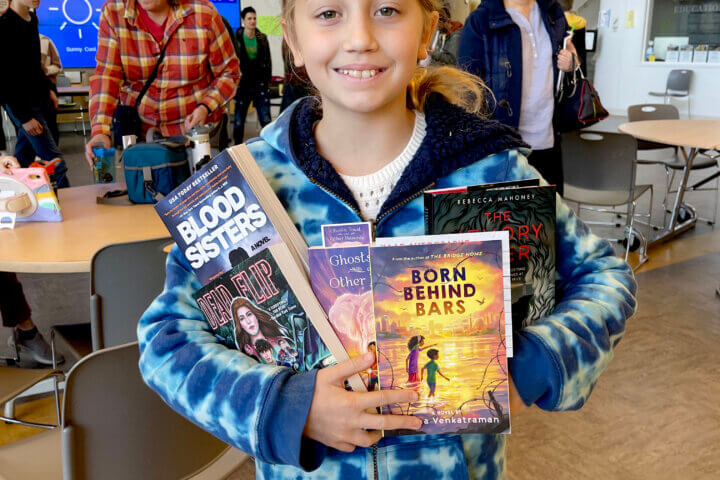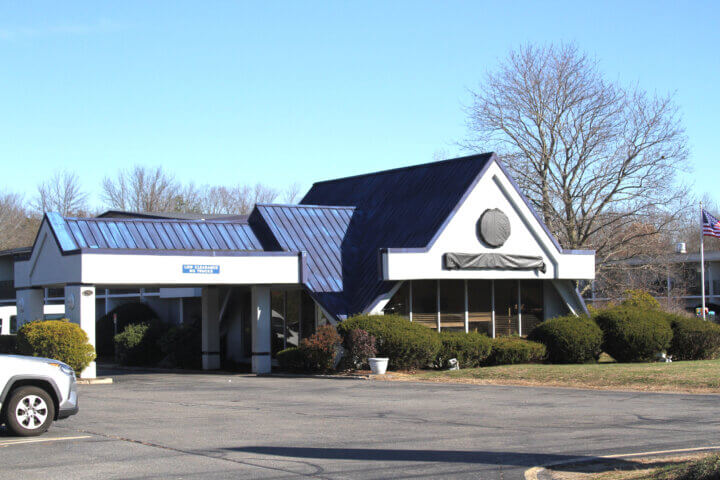On Tuesday, February 7, the Concord-Carlisle Regional School District Committee held their biweekly meeting to discuss district-related topics. The agenda included highlights from the CCHS student representatives and the science department, as well as an update from the superintendent regarding school rankings.
At the beginning of the meeting, the student representatives, Harry Crowley ‘24, Zariah Alves ‘25, and myself, gave an update on what has been going on at the high school. In particular, students were selecting courses for next year and anticipating the new bell schedule, which was released the following day on Wednesday, Feb. 8. Some upcoming events were also mentioned, including Student Senate’s Valentine’s Day festivities, auditions for the spring musical “Into the Woods” and playoffs for spring sports.
During the Recognitions portion of the agenda, the CCHS science department presented videos on two opportunities offered at the high school in Science, Technology, Engineering and Mathematics, or STEM. The first, presented by CCHS Science Department Chair, Dr. Vela, and a senior, Tate Becker, showed some of the projects created by students taking the Mechanical Engineering elective at CCHS.
During the semester-long course, students design, model, and assemble their own gadgets. One of these is a sensitive hydraulic arm controlled by syringes that can move soda cans, scoop up mini marshmallows, and even play Jenga! Another project made by the mechanical engineering students was a walker mechanism made of intricate, precisely-measured laser-cut pieces.
The mechanical engineering elective is part of the larger Engineering Certificate program offered at CCHS, which Dr. Vela describes as a rigorous program—“almost like a minor”—that involves two programming courses, three engineering classes, several other STEM electives, and general math and science course requirements. About 15 students per year complete this and earn the 52.5 STEM credits associated with it.
The science department’s second presentation was on the Teach Our Youth Science, TOYS, club led by Ms. Benson, which ties STEM education into community outreach. CCHS TOYS members take monthly trips to the elementary schools to perform fun experiments and inspire younger students about the science behind those experiments.
The video, narrated by junior and club member Sam Richman included clips of club members in action at the elementary schools. The younger students were shown watching and laughing in awe as they worked with the high school TOYS students to perform experiments such as chromatography with Skittles and building spaghetti and marshmallow towers. The members of TOYS echo each other in their appreciation of the uplifting experience to interact with younger students and spread the message that “science is for everyone.”
The last major agenda item was the issue of school rankings. This year, Boston Magazine ranked CCHS 31st out of 151 schools, significantly lower than the typical fluctuation around the top 10 to 15 range that CCHS has maintained in previous years. As this apparently abnormal number was beginning to cause concern among some community members, Superintendent Laurie Hunter and the School Committee shared a presentation to clear up the confusion and reassure the community that the ranking is not indicative of any major change at CCHS.
Among the majority of categories, including the teacher-student ratio, Massachusetts Comprehensive Assessment System or MCAS and Advanced Placement or AP scores, graduation rate, and teacher evaluation, CCHS consistently ranked among the top schools in Massachusetts, competitive with other districts.
However, the School Committee shared that two factors may have been attributable to the overall decline in this year’s ranking. The first was class size, which at 19.5 students per class placed CCHS at the bottom of the list of the top 30 schools. This is largely due to increased enrollment, explained the Committee.
Additionally, CCHS was reported as only having 72.3 percent of graduates attending college; however, this number may have been distorted during the data reporting process, resulting in inaccurate information conveyed by the state Department of Elementary and Secondary Education and the media. The CCHS Guidance Department recorded that the percentage of college-bound students is actually 91 percent which should have landed CCHS at the top of the list.
A similar problem of misreported data has also been reported in other districts, including Medford. Ultimately though, the School Committee reiterated that numerical rankings are far from capturing the holistic perspective and should not be overly relied on to inform the community of what is happening at CCHS.
Committee members concluded the presentation by reinforcing that students and teachers should get more recognition for what they are doing and that the rest of the community should be able to see that.
Felicity Zhang is Junior Editor in Chief for The Voice, the CCHS student news site and student member of the Regional School Committee





